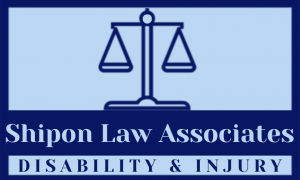My Claim Was Denied: A Guide to Filing a Claim Petition in Pennsylvania
A PA work injury claim denial by an insurance company feels like a door slamming shut. You reported your injury, sought medical treatment, and followed the process, only to receive a letter saying your claim won’t be paid. This moment catches many injured workers off guard, leaving them unsure whether they have any options left. Speaking with a Philadelphia workers’ compensation lawyer at this stage can help you understand what steps to take next and how to protect your rights.
The good news is that a denial doesn’t end your case. In Pennsylvania’s workers’ compensation system, a denial often marks the point where informal claims end and formal legal rights begin. Filing a claim petition with the Workers’ Compensation Office of Adjudication starts a structured process where you present evidence before a workers’ compensation judge who reviews your case independently.
Key Takeaways for a Denied Workers' Compensation Claim in PA
- A claim petition is the formal document that initiates litigation in Pennsylvania workers’ compensation cases.
- Pennsylvania law gives you three years from the injury date to file a claim petition in most cases (77 P.S. § 602), though acting sooner strengthens your position.
- The denial letter itself often explains the insurer’s reasoning, which helps you identify what evidence you need to challenge.
Why Pennsylvania Work Injury Claims Get Denied
 Insurance carriers deny workers’ compensation claims for various reasons, and the stated basis affects how you respond. Some denials involve straightforward disputes about facts, while others raise more complex medical or legal questions. Reviewing your denial letter carefully reveals the specific grounds the insurer used.
Insurance carriers deny workers’ compensation claims for various reasons, and the stated basis affects how you respond. Some denials involve straightforward disputes about facts, while others raise more complex medical or legal questions. Reviewing your denial letter carefully reveals the specific grounds the insurer used.
Common Reasons for Claim Denials
Insurers typically base denials on one or more of these categories:
- Causation disputes, where the insurer claims your injury isn’t related to your job duties
- Pre-existing condition arguments, suggesting your symptoms stem from an earlier problem
- Late notice allegations, asserting you failed to report the injury within the required timeframes
- Medical evidence gaps, where the insurer questions whether documentation supports your claimed condition
- Employment status questions, disputing whether you qualify as a covered employee
Each denial reason requires a different type of evidence to overcome. Identifying the insurer’s argument helps focus your response.
What the Denial Letter Tells You
Pennsylvania insurers must provide written notice when they deny a claim. This document, often called a Notice of Workers’ Compensation Denial, explains the specific basis for the decision. Read it carefully and keep it safe, as it becomes important when you file your claim petition.
Case Results
$85,000
Motorcycle Accident
"*" indicates required fields
What Is a Claim Petition in Pennsylvania?
A claim petition is the formal legal document that asks a workers’ compensation judge to review your case and order benefits. Filing this petition transforms your dispute from an informal disagreement with an insurance company into a structured legal proceeding with rules, deadlines, and hearings.
How the Petition Process Works
Once you file a claim petition, the Workers’ Compensation Office of Adjudication assigns your case to a workers’ compensation judge. The judge schedules hearings where both sides present evidence, question witnesses, and make legal arguments. This process looks different from a typical courtroom trial but follows similar principles of fairness and procedure.
The Judge’s Role in Your Case
Workers’ compensation judges in Pennsylvania operate independently from insurance companies and employers. Their job is to evaluate the evidence, apply the law, and issue a decision based on the facts. Unlike the insurance adjuster who denied your claim, the judge has no financial stake in the outcome.
Filing a Claim Petition After Your PA Work Injury Claim Is Denied
The claim petition process involves specific forms, deadlines, and procedural requirements. Missing a step or filing incomplete paperwork may delay your case or create complications that affect the outcome.
Required Information for Your Petition

Essential elements of a Pennsylvania claim petition include:
- Your personal information and contact details
- Your employer’s name, address, and insurance carrier information
- A description of how, when, and where the injury occurred
- The specific body parts affected and medical treatment received
- Proof that you followed reporting rules, like the 120-day notice requirement
Accurate, complete information strengthens your claim by preventing procedural objections from the insurer.
Pennsylvania’s Three-Year Deadline
Pennsylvania law gives you three years from the injury date to file a claim petition in most cases (77 P.S. § 602). Different deadlines apply if you’re challenging a suspension or termination of existing benefits. While three years sounds like plenty of time, delays weaken cases. Witnesses forget details, medical records become harder to connect to the workplace incident, and evidence may disappear.
What Happens After You File Your Claim Petition
Filing the petition sets a formal legal process in motion. The Office of Adjudication assigns a judge, notifies the employer and insurer, and schedules an initial hearing. From this point forward, your case follows a structured timeline with specific procedural steps.
The Hearing Process
Hearings in Pennsylvania workers’ compensation cases typically occur at district offices throughout the state. Philadelphia, Pittsburgh, Harrisburg, and other cities host regular hearing schedules. The judge hears testimony, reviews medical evidence, and considers legal arguments from both sides before issuing a written decision.
Types of Evidence That Support Your Case
Medical documentation often plays the central role in disputed claims. Doctors who treat your condition may provide testimony, either in person or through written reports called depositions. Employment records, witness statements, and documentation of your job duties also help establish the connection between work and injury.
How an Attorney Helps When Your PA Work Injury Claim Is Denied
Navigating a claim petition without legal help is technically possible, but the process involves procedural complexities that may affect your outcome. Insurance companies have attorneys who know how to defend against claims. Working with a Pennsylvania workers’ compensation attorney helps level the playing field.
Gathering and Presenting Evidence
Attorneys who handle denied claims know what evidence workers’ compensation judges find persuasive. They identify gaps in your documentation, obtain additional medical opinions when necessary, and present your case in a way that addresses the specific reasons for denial. This preparation may make the difference in close cases.
Fighting for Fair Compensation
A denied claim may involve significant benefits, including wage replacement, medical expense coverage, and specific loss awards for permanent injuries. An attorney helps you pursue compensation by building the strongest possible case for the judge to consider.
FAQ for PA Work Injury Claim Denied Cases
Pennsylvania law still allows you to pursue benefits even if your employer’s situation changed. The Workers’ Compensation Office of Adjudication maintains records of insurance coverage, and mechanisms exist to identify the responsible carrier. Your claim petition names the employer and carrier on record at the time of injury.
Yes, though payment responsibility remains disputed until the judge issues a decision. Many injured workers use personal health insurance during this period and seek reimbursement if the claim petition succeeds. Documenting all treatment remains important regardless of how you pay for it.
Pennsylvania’s workers’ compensation system includes an appeals process. Decisions from workers’ compensation judges may be appealed to the Workers’ Compensation Appeal Board. Further appeals to state courts remain possible in limited circumstances.
A Denial Is a Detour, Not a Dead End

A conversation about your options costs nothing. We handle claim petitions on a contingency fee basis, meaning you pay nothing unless we recover benefits on your behalf. If your work injury claim was denied and you’re unsure what comes next, contact Shipon Law Associates today. You aren’t just another number to us.

 Pennsylvania lawmakers created this requirement so employers and insurers have a reasonable opportunity to investigate claims while evidence remains fresh. Witnesses remember details, surveillance footage hasn’t been erased, and medical records clearly connect treatment to the workplace incident.
Pennsylvania lawmakers created this requirement so employers and insurers have a reasonable opportunity to investigate claims while evidence remains fresh. Witnesses remember details, surveillance footage hasn’t been erased, and medical records clearly connect treatment to the workplace incident.
 Deadlines that seem distant have a way of arriving faster than expected, especially when you’re focused on healing and getting back to work. At
Deadlines that seem distant have a way of arriving faster than expected, especially when you’re focused on healing and getting back to work. At 








